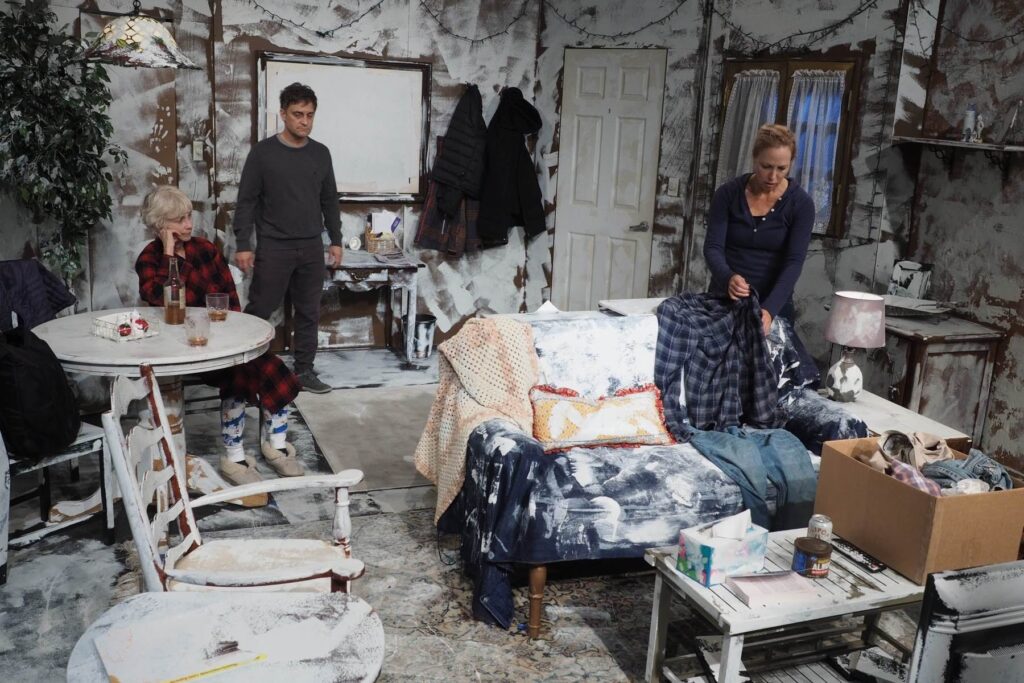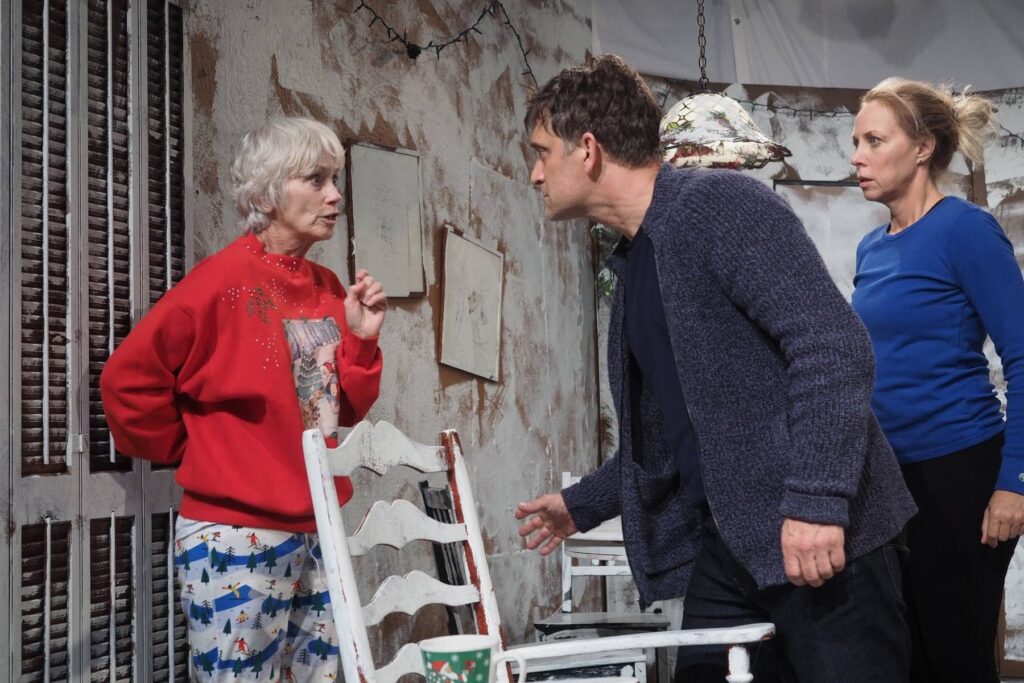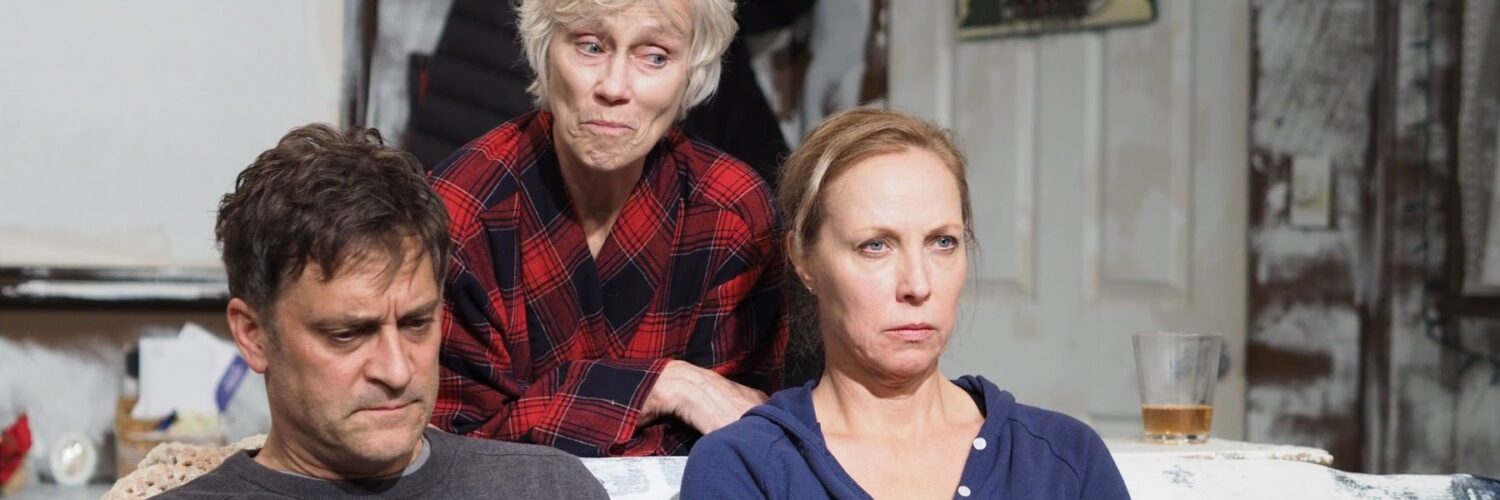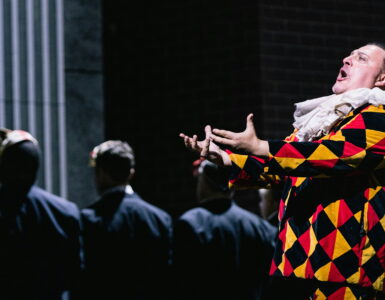
The first time I saw Samuel D. Hunter’s A Permanent Image, seven years ago, I liked the performances but was underwhelmed by the play itself. Since then I’ve seen several more pieces of Hunter’s work, of varying degrees of quality, and now feel like I can put Image, one of his earlier plays, in context. And unfortunately what I once regarded as underwhelming I now see as a fitfully entertaining failure. Mind you, the current production at Pacific Resident Theatre is probably about as strong a version of this play as is possible, with terrific performances across the board, but it can’t get past the inherent problems with the writing.
In 2011 on Christmas Eve, photojournalist Bo (Scott Jackson) has returned home to his parents’ house in small town Idaho to attend his father’s funeral. He finds, to his shock, that his mother Carol (Terry Davis) has painted everything inside the house white, including the furniture and pictures on the walls. Bo’s sister Ally (Dalia Vosylius) arrives a bit later, unexpectedly without her wife and two-year-old child. Bo and Ally want to know why their mother is acting so strangely, but she isn’t much help, drinking and being defensive. The siblings squabble until they find out the true circumstances of their father’s passing, which stuns them both. And then Carol drops the bombshell.

Jackson is very good as Bo, a man who thinks he’s seen the worst the world has to offer and then is aghast at the craziness in his old family home. Vosylius is excellent as the misguided Ally, who has good intentions but bad priorities. Her asking Bo of her father’s death, “Are you sad?” is a delicately handled moment, because Ally isn’t sure that she is and thinks she should be. Davis is energetic and amusing as Carol, but perhaps leans into the loony aspects of the character a bit too much, making the dramatic moments less credible.
Director Andy Weyman gets expert work from his cast, keeps the pacing swift, and is helped immeasurably by Lando Piastri’s vivid “white paint explosion in a midwestern living room” set design. While there are good moments and a lot of effective dark humor in the show, Hunter has two main problems that hamstring the play. The first problem is some of the characters, whom the playwright both opens to mockery and wants us to sympathize with, which doesn’t quite work here. Ally is a proto-MAGA workaholic who thinks Muslims are going to come to America and kill everyone, says things like “Obama is a retard” and has general contempt for liberals. Carol is a nightmare mother who treats her kids horribly, constantly berates her son for being an intellectual and says, “I was never an alcoholic because alcoholism doesn’t exist.”
The second problem is the very premise of the play itself, which Hunter can’t quite sell. ***SPOILERS FOLLOW: It turns out that Dad killed himself, and Carol intends to follow suit directly after the funeral (are any funerals actually held on Christmas Day?) and wants her children to be there with her. END SPOILERS***
The reasons for this plot twist – essentially the point of the play – are nebulous, which undercuts the effectiveness of the entire thing. Also, Hunter spends so much time making his characters over-the-top or repulsive that the sudden switch to emotional drama is such a whipsaw turn that it simply doesn’t succeed.
Ultimately, the PRT production of A Permanent Image is an entertaining version of a problematic play.
A Permanent Image is presented by and at Pacific Resident Theatre and plays through January 14. Tickets are available here.








